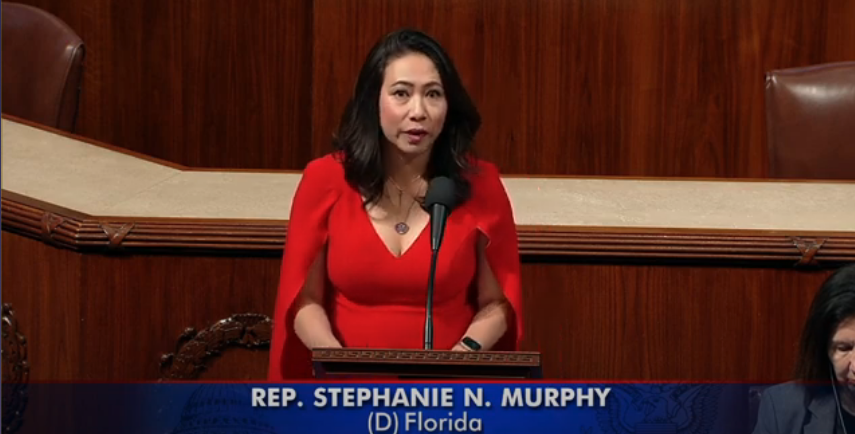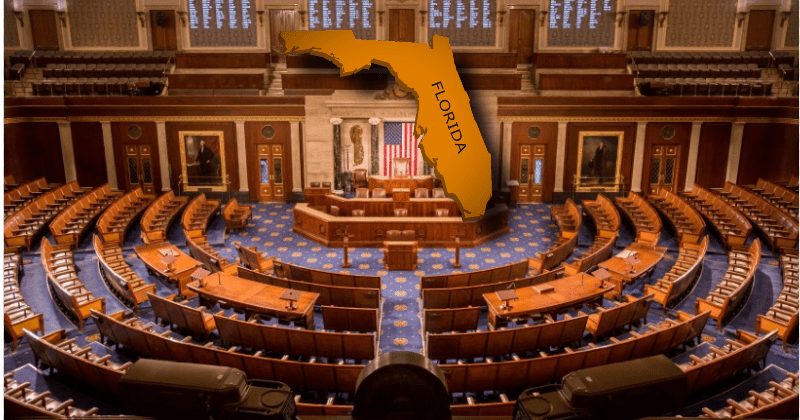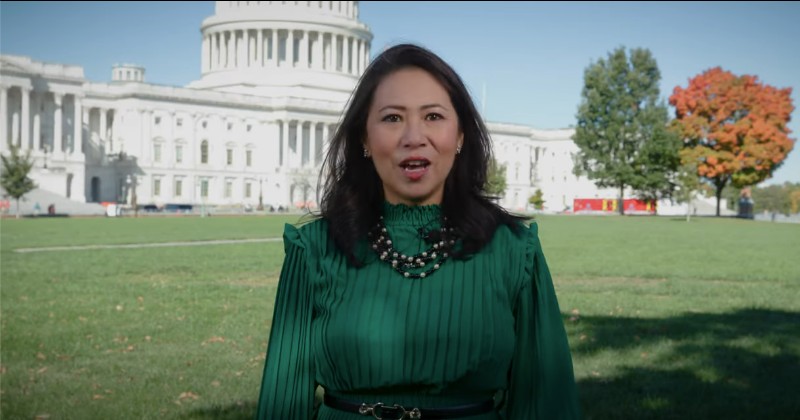Last week, U.S. Rep. Stephanie Murphy, D-Fla., spoke at the S&P Global Platts Aluminum Symposium and weighed in on how trade policies can hurt American medical manufacturing.
Murphy said the following:
Good morning.
Thank you for that warm introduction. And many thanks to the S&P Global Platts conference team for inviting me to speak. I’m honored to be here.
My plan is to give some short remarks and then to answer any questions you have about Congress. Life in our nation’s capital is many things right now, but boring is not one of them.
I know you are all aluminum experts—so you need to promise me you’re not going to ask me about the smelting process, or about the difference between primary and secondary aluminum, or anything like that. But pretty much anything else is fair game.
Sarah touched briefly on my background, and I’d like to begin by telling you a bit more about how I got here—because it’s been quite a journey.
I know you must be shocked to hear that an elected official wants to talk about herself. But I promise my self-reflection has a larger purpose. I think hearing my story will help you understand why I cherish this country, why I’m so proud to be a Member of Congress, and why I approach my job as a lawmaker the way I do.
Then I’d like to outline my philosophy when it comes to trade and tariffs, which I know is a topic of interest to many of you. During the Q-and-A session, I’m happy to delve into more detail on specific trade issues, whether it’s the ongoing trade conflict between the United States and China despite the recent Phase One agreement; or the 10 percent tariff on aluminum imports that was imposed nearly two years ago for “national security” reasons; or USMCA—the agreement to modernize NAFTA that has passed Congress and will be signed by the President soon.
But before we discuss the present and the future, let me look to the past. Don’t let my very Irish name confuse you. I was born in Vietnam a few years after the Vietnam War ended. A communist government had taken power in the country. And it sought to punish those citizens who had worked with American or South Vietnamese forces during the war. Both of my parents fell into that category.
When I was a baby, and my brother was eight, my father and mother concluded that things had to change. They wanted us to be safe, to have freedom and dignity, and to have a fair shot at a better future—and they didn’t think any of this was possible in Vietnam.
So we fled Vietnam by boat, along with several other families, my father at the helm. My parents knew we might not survive the passage. But they had decided that it was better for our family to die together in search of light than to live in darkness any longer. Years later, now that I’m the mother of two young children myself, I can’t imagine the courage this took.
Several days into our attempted escape, our boat ran out of fuel in the middle of the South China Sea. I assume the adults on the boat must have thought the end was near.
Thanks to grace or good fortune, a U.S. Navy ship that was patrolling in the area received our distress signal and located our boat. The sailors onboard, all of them trained for combat, showed kindness to desperate strangers. They gave us the fuel and supplies we needed to safely reach a Malaysian refugee camp.
This was the moment that made the rest of my life possible. And although I was too young to realize it, this was also my first lesson in America’s uniquely wonderful combination of power and generosity.
After spending several months at the refugee camp, my family again became the beneficiary of American clout and compassion. President Carter, despite significant public skepticism, made the courageous decision to increase the number of refugees from Southeast Asia that the United States would accept. This policy change enabled a Lutheran Church in Virginia to sponsor my family’s passage to the U.S, where we eventually became proud citizens.
In the course of our physical journey from Vietnam to America and our emotional journey from darkness to light, my family incurred an enormous debt of gratitude to this country. When I pause now to look back on my life, it’s clear that many of the choices I made were part of an effort to chisel away at this debt, while knowing I could never repay it in full.
It’s the reason why, after 9/11, I left my job in the private sector, went to graduate school, and joined the Department of Defense as a civilian employee. When I saw the country that had saved my family come under attack, I felt like I had to do something—anything—to help. I spent four years as a national security specialist working under two secretaries of defense, who happened to be Republicans. It was one of the most fulfilling periods of my life. I served alongside men and women who didn’t give a darn about your political views. All that mattered was accomplishing the mission.
Nearly a decade later, in 2016, I again heard the call to serve. By then I had moved with my husband to Orlando. I was back working in the private sector. We had two young children and something resembling a normal life.
But one summer evening, a man walked into the Pulse nightclub in my community and gunned down 49 innocent people who had gathered to have fun with their friends. The incident knocked the air out of me, and so did the anemic response from the long-serving Member of Congress who represented the area. For him, it was just business as usual. He simply could not summon the will to support commonsense steps that would make it harder for dangerous people to use battlefield weapons to destroy lives and tear apart communities.
So I did something that probably qualifies as certifiably insane. Despite having never run for anything in my life, not even student government, I launched a long-shot, four-month campaign to unseat this particular Member of Congress. I was motivated by this idea that if we want to change Washington, then we need to change the type of people we send to Washington. I also thought about Teddy Roosevelt’s famous line that credit goes, not to the critic, but to the man—or woman—in the arena.
Well, to the surprise of virtually everyone, myself included, I won—becoming the first Vietnamese-American woman ever elected to Congress. It’s hard to put into words the gratitude I felt during my swearing-in ceremony. I watched my son wave the small American flag that I had received years earlier as a little girl on the day I became a citizen. I reflected on my parents’ incredible sacrifices. And I thought about my improbable journey—a journey that would have been impossible in any other country.
So that brings me back to the present day, where I’m now in my second term in Congress—having graduated from a wide-eyed freshman to a wise, worldly sophomore.
As you can imagine, my approach to this job has been shaped by the life experiences I just described.
For instance, I know it sounds like a cliché, but because of my past, I see myself as a patriot, not some partisan warrior. I’m a proud Democrat, but I don’t believe either party has a monopoly on good ideas or bad behavior. I’m skeptical of political extremism in all of its forms, whether it comes from the far right or the far left.
I’m worried about the high degree of polarization in this country, and I’m determined not to conduct myself in a way that makes it worse. You won’t see me demonize my Republican colleagues or question their motives. They’re my fellow Americans, not my adversary. I may disagree with them on some principles and policies, but I will always look to find common ground wherever possible. My party affiliation matters to me—but my country, my constituents, and my conscience matter more.
Another way my past has influenced my present is that I’ve tried to bring the “mission first” philosophy I learned at the Department of Defense to my work in Congress. On the legislative front, my mission will always be to get good bills over the finish line—because bills only make people’s lives better if they become law.
Politics is the art of the possible. And when power is divided between the parties, as it is now, nothing is possible without bipartisan support. Members of Congress who insist on purity will make no progress. And from my perspective, making progress—even if it’s incremental—is the point of public service.
I’ll turn now from the general to the specific. A year ago, at the start of my second term in office, I was appointed to the Ways and Means Committee and to the Trade Subcommittee.
Trade policy matters because it rests at the intersection of domestic policy and foreign policy. It affects quality of life at home and our relationships abroad. Prosperity here in Florida is particularly dependent on international trade in goods and services.
I’m proud to call myself a pro-trade Democrat—and you’d be surprised how rarely those words are uttered in Washington. To be clear, I don’t support free trade. That’s a misnomer—because it suggests unfettered trade or a free-for-all. But I do believe that expanding trade is vital to advancing America’s economic and security interests.
I support a global trading system that is based on enforceable rules. These rules should help ensure U.S. companies rise or fall on their own merits, and don’t have to compete on an unfair playing field with foreign-based companies that mistreat workers, pollute the environment, steal intellectual property, or receive excessive government support.
Because of my pro-trade orientation, I tend to be skeptical when the United States—or any country for that matter—turns to protectionist measures like import tariffs. In my view, history shows these measures are more likely to result in self-harm than self-preservation.
That said, I don’t oppose all tariffs. They may be an appropriate and even necessary tool in certain cases. For example, when the WTO authorizes the U.S. to impose tariffs, like it did in the Boeing-Airbus dispute, that’s legitimate.
In addition, the U.S. has a relatively fair and apolitical process for imposing tariffs when American companies are harmed because a foreign company dumps its product into the U.S. market or receives export subsidies from its government. In addition to the U.S. Commerce Department, this process provides a significant role for the U.S. International Trade Commission, whose bipartisan members are nominated by the president, then confirmed by the Senate, but are otherwise independent from the executive and legislative branches. Anti-dumping and countervailing duties are a longstanding feature of American law. So long as they are calculated in a reasonable way, they too are a legitimate way to uphold the rules-based global trading system.
I do become concerned, however, when the United States imposes or threatens to impose tariffs, without WTO authorization or ITC involvement, under legal authorities like Section 232 of the Trade Expansion Act of 1962, Section 301 of the Trade Act of 1974, or the International Emergency Economic Powers Act of 1977, known as IEEPA.
As you can imagine, the last few years have made my blood pressure rise to a degree that would concern most medical professionals.
The Trump administration has made unprecedented use of tariffs to respond to a broad spectrum of economic and foreign-policy challenges, leading to extensive counter-tariffs on our exports, harming American businesses and consumers, and damaging our relationships with key allies and partners.
For example, the administration has placed tariffs on aluminum and steel imports from most countries under Section 232, placed tariffs on many Chinese imports under Section 301, and threatened to place tariffs on all Mexican imports under IEEPA—based on immigration concerns, not trade concerns.
All told, the various tariff actions taken by the current administration affected nearly $400 billion, or 15.5 percent of total U.S. trade, last year. That’s a shocking figure—especially for a country that, since the Great Depression, has prided itself on leading the international effort to reduce tariffs and other trade barriers.
Just as startling, because of the way our domestic trade laws have been written and interpreted, not one of those trade actions required congressional approval.
This is particularly galling in the case of Section 232, which gives a president power to impose restrictions on imports if the Commerce Department finds they threaten a domestic industry deemed vital to national security.
As I’m sure you’re aware, because of the current tensions with Iran, there is a major public debate taking place in Washington and around the country right now about the proper role of Congress in military matters. Although there is plenty of disagreement, there does seem to be a broad bipartisan consensus that a president should not be able to engage our armed forces in sustained military operations without express authorization from Congress.
Against this backdrop, it’s jarring—to say the least—that our laws empower a president to impose tariffs—on aluminum, steel, automobiles, or any other product—for an indefinite period of time, based on a claim that such tariffs are necessary to protect national security—and that Congress has no say whatsoever in the matter. That’s why I’ve introduced legislation to change the law—so that Congress will have to take an affirmative vote if tariffs imposed by a president for national security reasons are to remain in place for more than a short period of time.
Let me close with this thought. As I said at the outset, you know the complexities of the aluminum market far better than I do. I do know that there is global overcapacity in this market, caused in part by foreign government subsidies, especially in China. I also know this overcapacity, combined with relatively high electricity costs in this United States, has harmed the domestic production of primary aluminum. That’s why the U.S. imposes anti-dumping and countervailing duties on certain Chinese aluminum imports—and I have no basis to quibble with that.
But, to be honest, I think the argument that broad-based aluminum tariffs—imposed on friend and foe alike—are necessary to protect national security is a real stretch. For those of you who disagree, I respect that—but you should have to make that case to Congress, not just the Commerce Department and the President, and your burden of proof should be high.
Making sure that Section 232 is not misused or abused by a U.S. administration matters, first and foremost, because we are a nation of laws, but also because other countries are watching what we do, and will no doubt follow our lead. What’s to stop other countries from slapping tariffs on our exports based on a gossamer-thin claim that such tariffs are necessary to protect their national security? And how will we have the moral or legal authority to push back on such an action when we are guilty of it too?
With that, I’ll stop there. Thank you again for inviting me and I look forward to answering your questions.














